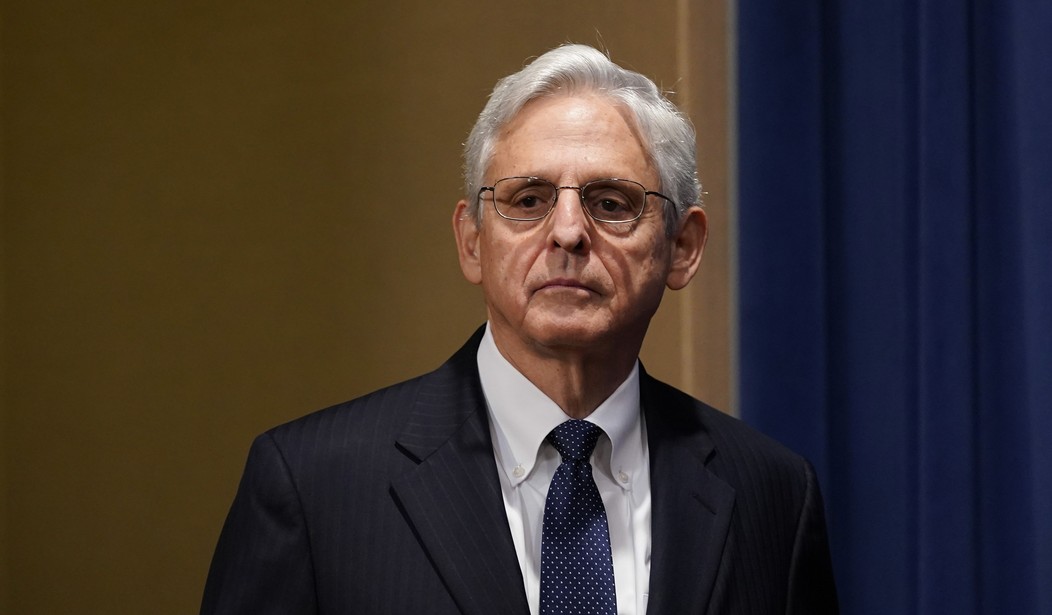Coming from a different sort of person, you can imagine this being a sincere, even statesmanlike attempt to cool public passions at a moment when the risk of political violence is higher than usual. Coming from a guy who warned that his fans would riot if he were denied the 2016 nomination and who watched the insurrection on TV for hours with delight without intervening, it carries a different tone.
Assuming this is true, it sounds like his way of threatening the attorney general of the United States to back off him unless the DOJ wants to see civic unrest from his most fanatic supporters.
Shortly before Mr. Garland made the announcement [about the search of Mar-a-Lago], a person close to Mr. Trump reached out to a Justice Department official to pass along a message from the former president to the attorney general. Mr. Trump wanted Mr. Garland to know that he had been checking in with people around the country and found them to be enraged by the search.
The message Mr. Trump wanted conveyed, according to a person familiar with the exchange, was: “The country is on fire. What can I do to reduce the heat?”
Per WaPo, not only was he not worried about “the heat” privately, he relished the fact that he could exploit it politically to his own advantage. “Instead of exhibiting any concern [about the search], two people who spoke to him Monday evening both reported that Trump was ‘upbeat,’ convinced the Justice Department had overreached and would cause Republicans to rally to his cause and help him regain the presidency in 2024,” the paper reported. One friend claimed that Trump viewed the episode as a “political coup for him.” And you know how much he likes coups.
If he truly wanted to turn down the political heat in America, I can think of a few things he might have done differently.
1. He could have returned all of the documents the first time the National Archives asked for them back.
2. He could have returned them later when the DOJ subpoenaed them.
3. Having failed to return them, he could have kept the search of Mar-a-Lago a secret. Remember, it wasn’t the feds who announced it. Trump announced it on Truth Social because he recognized that the incident would benefit him politically. The FBI even carried out the search dressed in civilian clothing so as not to alert bystanders as to what was happening. Trump alerted the country because he wanted to raise “the heat.”
4. He could now call on his followers to chill out before one of them kills someone, as nearly happened a few days ago in Cincinnati.
5. He could, at the very, very least, refrain from further inflaming the situation:

Of course, the best way to have turned down the heat would have been to not remove classified material from the White House in the first place, thereby risking this sort of standoff over recovering the documents. One former aide blamed that on carelessness, not maliciousness:
President Donald Trump remained preoccupied with overturning his November 2020 election loss. He spent his last days meeting with lawyers, plotting how to settle scores with Republicans who voted to impeach him after the Jan. 6 riot at the U.S. Capitol and negotiating over pardons with his advisers, former aides said…
“If you only start packing with two days left to go, you’re just running low on time,” a former aide said. “And if he’s the one just throwing things in boxes, who knows what could happen?”
Another former aide said uncertainty pervaded the West Wing in the final weeks as the president continued to contest the election. “It was a weird time,” the aide said. “It was like, are we doing this? Are we not doing this?”
I can … sort of buy that. Trump famously isn’t a big reader; I doubt he knew chapter and verse of which documents were in the boxes that ended up at Mar-a-Lago. But it’s a hell of an excuse for a mishap with classified material for his deputies to say, “Sorry for the mix-up, we were too busy coup-ing at the time.” And of course it doesn’t explain why the documents weren’t returned promptly once he and his team were notified that the Archives wanted them back.
In lieu of an exit question, read this analysis of the president’s power to declassify classified information. As I explained yesterday, that’s a red herring legally in this case because the statutes listed on the Mar-a-Lago search warrant don’t depend on whether the documents in question were classified. But insofar as Trump continues to insist that there was a “standing order” declassifying any material he removed, note this passage: “Glenn S. Gerstell, the top lawyer for the National Security Agency from 2015 to 2020, pronounced the idea that whatever Mr. Trump happened to take upstairs each evening automatically became declassified — without logging what it was and notifying the agencies that used that information — ‘preposterous.'”









Join the conversation as a VIP Member